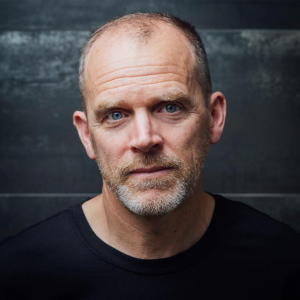Podcast: Play in new window | Download

Last year, research at Johns Hopkins showed that healthcare consumes nearly half of all federal spending, which includes funding for Medicare, Medicaid, Social Security, military health benefits, health benefits for federal employees and their dependents, plus interest. Our federal government spends 48% of its money on health care and still healthcare devastates state budgets all across this country, with serious consequences in public health, education and other national priorities.
This week’s guest, Dave Chase, is the Creator, Co-Founder, and CEO of Health Rosetta. Health Rosetta is an ecosystem enabling public and private employers and unions to reduce their health benefits spending by 20% or more while improving the quality of care for plan members. Dave is also the author of Relocalizing Health: Relocalization is a strategy to build communities based on the local production of food, energy and goods. When applied to healthcare, a relocalization effort bring about systematic change – it could lead to strengthened local economies, improved population health, higher value in care delivery, and health equity. Dave expounds that health doesn’t start with a pill or in a hospital. It starts at home, with parents, with neighborhoods, with workplaces, and communities. Relocalization will be an important key for winning the race to value!
Episode Bookmarks:
04:05 Defining the Relocalizing Health strategy and why it needs to be applied to healthcare
05:45 How to create systems change at a grassroots level
06:25 Applying a systems change model that focuses on adaptable replication (not scalability)
07:15 The Nuka System of Care in Southcentral Alaska as an example of a successful effort to relocalize health care
07:25 Rosen Hotels as another example of creating a consumer-oriented redesign of health care
07:40 Learning from the Jönköping Health System in Sweden
08:35 “Transformation moves at the speed of trust, and trust is built on complete transparency.”
08:50 How the legal and economic underpinnings of health plans are ‘completely rotten’ and must be made transparent
09:15 Seeking transparency in the way health insurance brokers are paid
09:27 “There is no well-functioning healthcare system in the world not built on proper primary care.”
09:35 “Healthcare isn’t expensive — only 27 cents of every healthcare dollar goes to clinicians who are the value creators. What’s expensive is profiteering, price gouging, administrative bloat, and fraud.”
10:00 Dave discusses the advancements of modern-day computing as an example of why we need to work on the fractals of healthcare (i.e. the piece parts)
11:05 Research from Marty Makary showing that the federal government spends 48% of its money on health care
12:55 A broken financing model for hospitals steals from public health, kids, education, social services, and public infrastructure
13:15 Economic Development 3.0: Playing the Health Card
13:35 How considering every hospitalization as a failure is a starting point for reform
14:30 The economic depression of the middle class due to wage stagnation, and how that was caused by healthcare costs
15:30 The Millennial Generation is the first generation in American history where life will not be better for their parents because healthcare is stealing their future
16:35 Referencing David Goldhill’s Catastrophic Care: Why Everything We Think We Know about Health Care
16:55 “I believe the Millennial Generation can be the greatest generation of this century.”
17:45 Massive student debt and how healthcare has driven up the costs of Higher Education
19:51 The national opioid epidemic crisis that is devasting communities. More than 760,000 people have died since 1999 from a drug overdose, and two out of three drug overdose deaths involve an opioid.
21:45 The opioid crisis isn’t an anomaly – it is our healthcare system. The key unwitting enabler is the employer.
23:45 The #1 cause of death for Millennials is opioid addiction
25:00 “Proper primary care is the answer to the opioid crisis, and that is the bottom line.” (referencing Rosen Hotels approach to primary care)
26:00 Eric reflects on his experience visiting a concentration camp and how we must never repeat history
27:00 Employer-paid Benefits tax break estimated at over $600 billion, making it the largest tax break in the tax code, and the primary wage suppression driver
28:05 Policy recommendations to the Biden Administration: 1) Enforce ERISA, 2) Fix the procurement process to eliminate fraud and waste, 3) provide flexibility to Community-Owned Health Plans
31:30 Using social Impact investing and opportunity zones to support promote health equity and social justice
32:45 Zubin Damania and The Health 3.0 Movement as a roadmap
33:55 Comparing the LEED green building standard to how relocalization of health at the community level can drive system change
35:00 How Paul Grundy got the name the “godfather” of the Patient-Centered Medical Home
36:30 The 5 things business leaders can do to make healthcare “LOCAL”
38:30 Fully-actualized, value-based primary care is the linchpin to success and how it allowed Rosen Hotels to spend 55% less per capita on health benefits than their competitors
39:40 The mistakes made by Haven (the Amazon, Berkshire Hathaway, and JPMorgan Chase healthcare partnership) and why jumbo employers struggle to drive change
40:40 Mid-market (companies that have 50-5,000 employees) is where the disruption really happen in employer healthcare
41:15 The Wal-Mart / Oak Street Health partnership as an example of effective large-scale change in managing complex medical conditions
42:30 Over 50% of so-called “healthcare dollars” are extracted out of local economies by out-of-town health systems and health plans
44:00 Community-owned health plans and the importance of employees having an “owner mindset”
46:20 Why Harris Rosen invested in Tangelo Park and related community programs in Orlando, Florida (Rosen Hotels Case Study)
50:00 How COVID-19 is like a WW2 event and comparisons to the building of the NHS
51:00 Nurses, Doctors, and Pharmacists should use the trust the community has in them to lead change (“Everyone has influence”)
54:00 Serving one’s calling and how that is better than just having a job or a career
